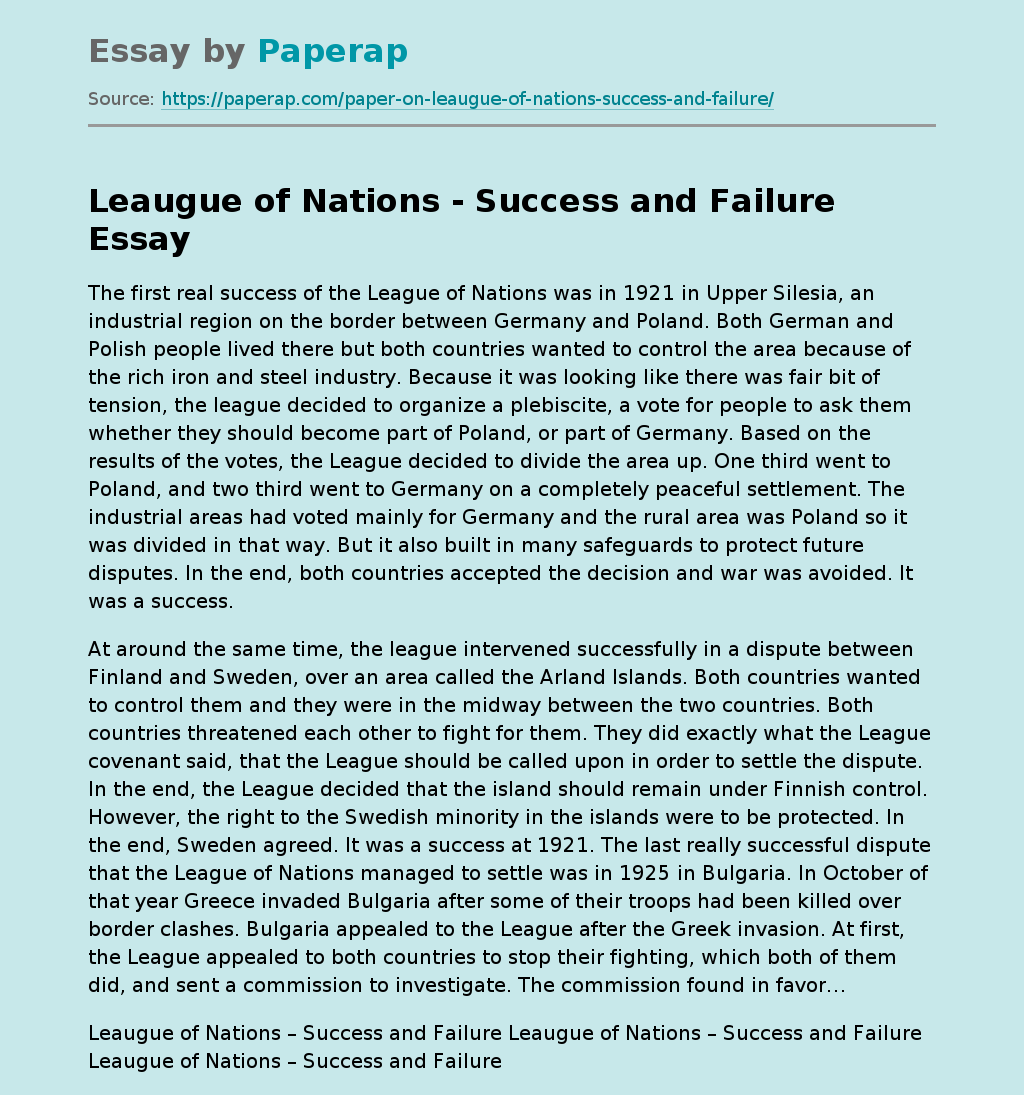Leaugue of Nations - Success and Failure
The first real success of the League of Nations was in 1921 in Upper Silesia, an industrial region on the border between Germany and Poland. Both German and Polish people lived there but both countries wanted to control the area because of the rich iron and steel industry. Because it was looking like there was fair bit of tension, the league decided to organize a plebiscite, a vote for people to ask them whether they should become part of Poland, or part of Germany.
Based on the results of the votes, the League decided to divide the area up.
One third went to Poland, and two third went to Germany on a completely peaceful settlement. The industrial areas had voted mainly for Germany and the rural area was Poland so it was divided in that way. But it also built in many safeguards to protect future disputes. In the end, both countries accepted the decision and war was avoided. It was a success.
At around the same time, the league intervened successfully in a dispute between Finland and Sweden, over an area called the Arland Islands. Both countries wanted to control them and they were in the midway between the two countries. Both countries threatened each other to fight for them. They did exactly what the League covenant said, that the League should be called upon in order to settle the dispute. In the end, the League decided that the island should remain under Finnish control. However, the right to the Swedish minority in the islands were to be protected.
In the end, Sweden agreed.
It was a success at 1921. The last really successful dispute that the League of Nations managed to settle was in 1925 in Bulgaria. In October of that year Greece invaded Bulgaria after some of their troops had been killed over border clashes. Bulgaria appealed to the League after the Greek invasion. At first, the League appealed to both countries to stop their fighting, which both of them did, and sent a commission to investigate.
Leaugue of Nations - Success and Failure. (2019, Oct 09). Retrieved from https://paperap.com/paper-on-leaugue-of-nations-success-and-failure/

